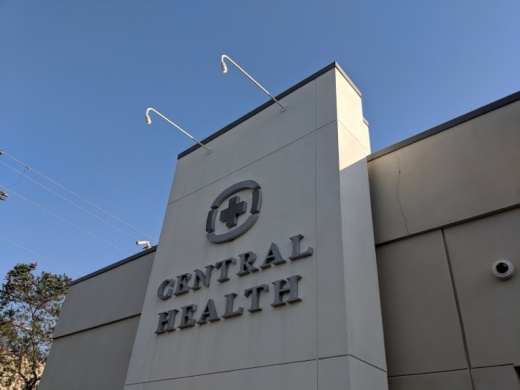Central Health officials presented their 2021 annual services report and an update on their equity plan at the Commissioners April 26 meeting.
Central Health was created in 2004 with the mission of providing healthcare services to the lowest income residents in the county, including homeless individuals.
During the report, Central Health officials said it is their goal to continue expanding its services and reach.
“It is the board's intent to not only provide the healthcare services need, but to continue to improve on how, when and where we provide those services,” Dr. Charles Bell, Central Health board chair, said.
One issue the health district is experiencing is a lack of healthcare providers. The district currently works with 37.7 primary care providers, while it needs at least 88.7—the factors refer to providers who only work with Central Health clients part time.
“Where are we seeing the increase in access to care based on what we campaigned on?” Commissioner Ann Howard asked. “What you are showing us is a lot of gaps. What does a community do to fill the gaps?”
President and CEO of Central Health, Mike Geeslin, said Central Health continues to grow the number of individuals it reaches and the services it is able to offer. In 2021, Central Health served more than 147,000 patients, which was an increase of 6% from the year prior, according to the presentation.
Geeslin and other Central Health representatives also spoke about new services the district is able to offer, such as convalescent care for individuals experiencing homelessness. The representatives also highlighted plans to open a new care facility in the next 12-18 months, which would offer several specialties, such as neurology and cardiology.
Commissioner Margaret Gómez pointed out that Central Health was founded in 2004 and still seems to be struggling to actualize its stated mission.“Some of us campaigned for central health because the legislation was written to help poor people,” Gómez said.
She said another selling point for Central Health was that it would keep mental health patients in Austin by expanding treatment options in the area. She said that has not happened yet.
Gómez said she is hopeful that the equity plan Central Health adopted in Feb. 2022 will help guide the healthcare district.
“I wish we had an equity plan 18 years ago [but] I think we could have gotten our clinics built sooner,” Gómez said.
The report and pushback come just a month after local chapters of the League of United Latin American Citizens and NAACP released a report detailing concerns with Central Health.
The report details eight concerns, ranging from the amount of services provided during the pandemic to financial questions.
The report also calls for an independent assessment of the healthcare district. Several Commissioners echoed the request for an additional audit.
Commissioner Jeff Travillion said he feels like the public is looking to understand how Central Health is improving residents’ lives.
“I think at the end of the day of the expectation of the public is ... when I give you a dollar I want a dollar of work,” Travillion said.





